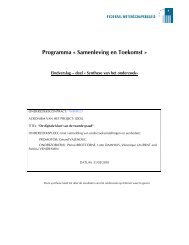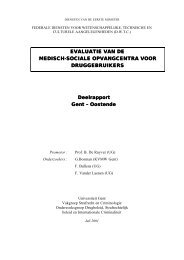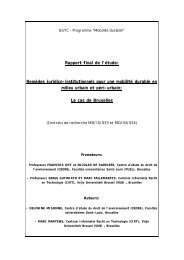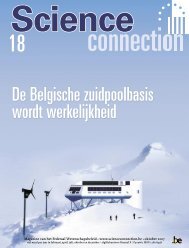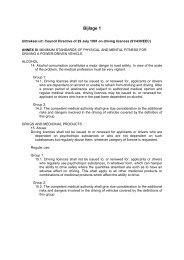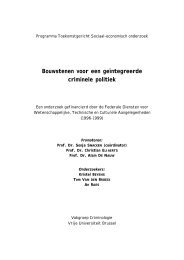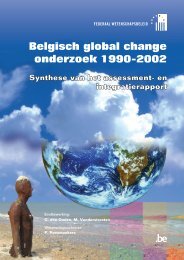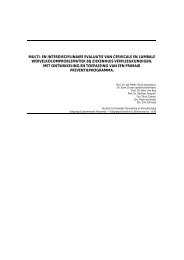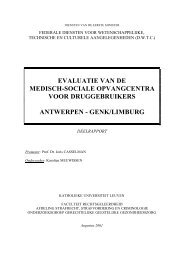chapter 3 inventory of local food systems
chapter 3 inventory of local food systems
chapter 3 inventory of local food systems
Create successful ePaper yourself
Turn your PDF publications into a flip-book with our unique Google optimized e-Paper software.
Project CP/59 - “Instruments and institutions to develop <strong>local</strong> <strong>food</strong> <strong>systems</strong>”<br />
• Institutional failures: institutions refer both to hard or formal institutions, such as<br />
rules, and s<strong>of</strong>t or informal institutions, such as culture and values;<br />
• Interaction failures: interaction refers to the linkages between actors that can be<br />
too strong resulting in myopia or too weak resulting in lack <strong>of</strong> cooperation and<br />
blind spots;<br />
• Capabilities failures: this refers to a lack <strong>of</strong> competences or resources especially<br />
with small and medium-sized enterprises.<br />
The last failure has been addressed in the previous section. Using our data to applying<br />
this theory to the development <strong>of</strong> LFS yields three additional propositions.<br />
Proposition 5: To further develop LFS, the knowledge base that supports the<br />
development <strong>of</strong> competences and insights needs to be developed.<br />
Universities, applied research stations and other science and technology actors are still<br />
geared towards the existing mainstream <strong>of</strong> commodity production. The development <strong>of</strong><br />
knowledge relevant for the LFS niches occurs itself in niches within these actors. A<br />
typical problem is that LFS are not able to generate the necessary co-financing for<br />
applied research projects compared to mainstream sub-sectors.<br />
Proposition 6: To further develop LFS, existing rules and institutions need to be adapted.<br />
The rules governing the agricultural and <strong>food</strong> sector are based on the old system <strong>of</strong><br />
strictly separated production stages. In LFS, however, production stages are reintegrated<br />
leading <strong>of</strong>ten to a conflict with the existing rules. This may refer to <strong>food</strong> safety<br />
regulation, transportation, retail, zoning regulations, etc.<br />
Proposition 7: To further develop LFS, initiatives need largers networks.<br />
When drawing the networks <strong>of</strong> our cases, it becomes immediately evident that these<br />
tend to be limited to a small group <strong>of</strong> people sharing the same assumptions and having<br />
established trust relationships. This refers both to other farmers, advisors and consumers.<br />
This may lead to myopia towards developments outside. This is also clear from the<br />
learning journeys to kindred initiatives and the invitation <strong>of</strong> experts who are part <strong>of</strong> the<br />
same inner circle. At the same time, weak ties with external partners outside the LFS<br />
sector are generally lacking.<br />
4.6. Conclusions<br />
The central question to this <strong>chapter</strong> was ‘what is needed for farmers to successfully<br />
develop <strong>local</strong> <strong>food</strong> <strong>systems</strong>?’. For this, we conducted three case studies using a mix <strong>of</strong><br />
observations, interviews and intervention research.<br />
We propose that farmers need three sets <strong>of</strong> competences. First, managerial competences<br />
are needed to convert ideas into action. Second, cognitive competences are needed to<br />
SPSD II - Part I - Sustainable production and consumption patterns - Agro-Food 69



